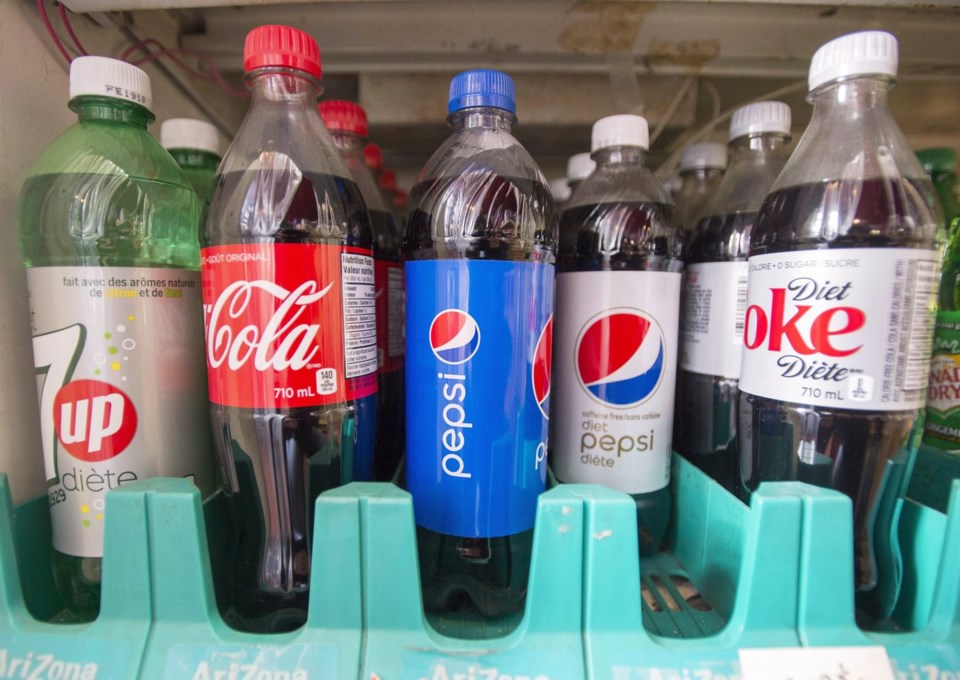ST. JOHN'S — A new study suggests a unique provincial tax on sugar-sweetened drinks may have dissuaded people from buying and drinking the beverages.
The study, sponsored by the Heart and Stroke Foundation of Canada, examines beverage sales and public attitudes before and after Newfoundland and Labrador’s so-called “sugar tax” took effect in September 2022.
It was released this week, just days before the provincial government is set to remove the levy, seemingly in response to years of uproar.
Rachel Prowse, a co-author of the report, says the findings show the province should reconsider.
"I think that it was premature to remove the tax based on public opinion, because I haven't seen any information that an evaluation was done," said the assistant professor at Memorial University in St. John's, N.L., in an interview.
"They could really be sitting as a leader for health in Canada at this time."
The tax in Newfoundland and Labrador added 20 cents per litre to sweetened drinks. This includes fruit-flavoured juices, pop and energy drinks. It did not apply to diet drinks, chocolate milk or beverages made from 100 per cent fruit or vegetable juices.
Prowse’s study says Newfoundland and Labrador was the first jurisdiction in the country to tax sugar-sweetened beverages.
She and her colleagues tracked beverage sales in Atlantic Canada in the years before and after the levy began. They also surveyed more than 1,233 people before and 2,008 people after about their attitudes toward purchasing beverages.
Their report says per-capita sales of sugar-sweetened drinks declined by 11.6 per cent in Newfoundland and Labrador after the tax came into effect, compared with a 6.7 per cent drop in the Maritimes, where there was no levy.
It also says 24 per cent of survey respondents said they were less likely to buy sugary drinks with the tax in effect.
“(The tax) was poorly communicated, it wasn't very visible on shelf tags, and yet it did have an impact,” Prowse said. “Although it's a small impact, and we need more research, it's still quite impressive that even a weak tax design still had benefits.”
The sugar tax quickly became a sticking point in the provincial legislature, where the Opposition Progressive Conservatives regularly called for its repeal, citing the cost of living. Others noted that it would disproportionately affect low-income households, which tend to consume more sweet drinks.
Prowse’s report found all income groups were less likely to consume the taxed drinks one year after its implementation, but those above the poverty line were the least likely.
The tax also would have had little effect on the drink-buying behaviours of food-insecure households, according to the report.
Liberal premier John Hogan announced last month that the government would repeal the tax on July 1.
The Heart and Stroke Foundation of Canada supports sugar-sweetened beverage taxes, and it recommends all governments implement them.
The revenue generated from the taxes should be used to support low-income families, with subsidies or vouchers for healthy food, universal school nutrition programs or a universal basic income, said a position statement from the foundation.
Prowse agreed with that position.
“We can't really affect the fact that people who consume more, who tend to be of lower income, are going to pay more,” she said. “So we have to change the impact of these policies by doing things that are going to actually achieve cost-of-living benefits for those people.”
This report by The Canadian Press was first published June 18, 2025.
The Canadian Press




